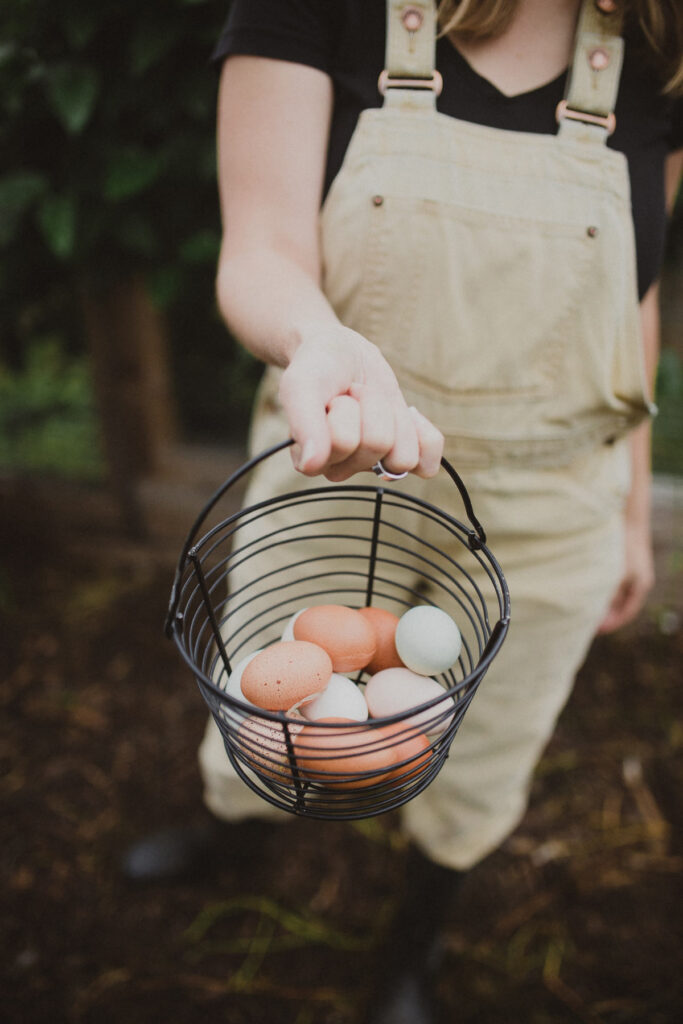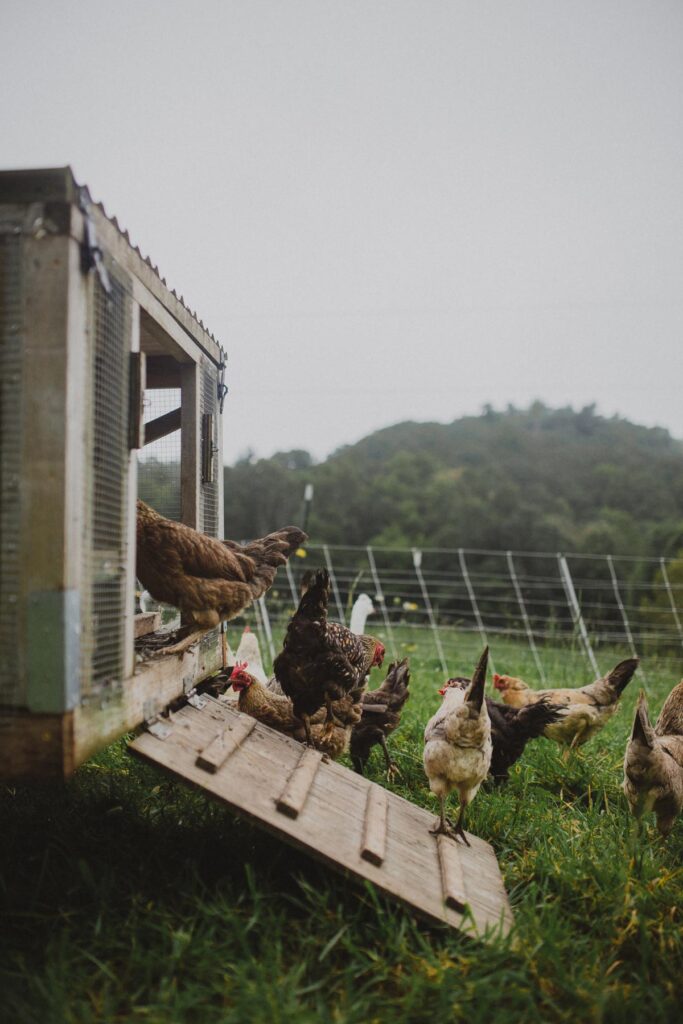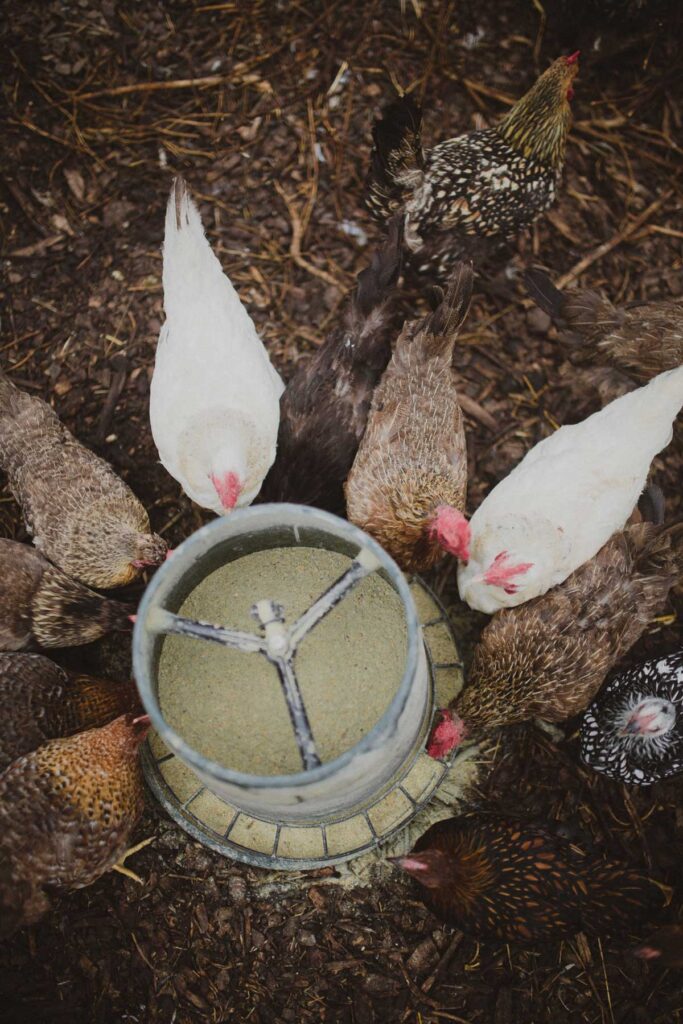Have you ever rushed out to your coop expecting to collect a bounty of fresh eggs only to find… nothing? I know the feeling! When my Rhode Island Reds suddenly stopped laying last winter I was completely baffled. After doing some digging (and a lot of worrying) I discovered there are actually numerous reasons why chickens might take a break from egg production.
Whether you’ve got a single backyard hen or a whole flock of layers, understanding why chickens stop laying eggs is crucial for maintaining consistent egg production. Let’s explore the most common reasons why your feathered friends might be on an egg-laying strike and what you can do to help them get back to business!
1. Not Enough Daylight
One of the biggest factors affecting egg production is daylight. Chickens need between 12-16 hours of light daily to maintain consistent laying When days get shorter during fall and winter, egg production naturally declines.
How to help: You can install artificial lighting in your coop set on a timer to extend “daylight” hours. However, many chicken keepers (myself included) believe it’s natural and beneficial for hens to have a rest period during winter months.
2. Improper Diet
Your chickens’ diet plays a huge role in egg production. Layers need specific nutrients to produce eggs, and any changes or deficiencies can cause them to stop laying.
How to help:
- Feed a high-quality layer feed (containing at least 16-18% protein)
- Ensure constant access to fresh, clean water
- Provide calcium supplements like crushed oyster shells
- Limit treats to 10% of their diet (the other 90% should be layer feed)
- Add protein-rich treats during molting periods
I’ve noticed that when I accidentally ran out of layer feed and temporarily substituted regular scratch grains, my egg production dropped dramatically within just a few days!
3. Molting
Molting is the natural process when chickens shed their old feathers and grow new ones. This typically happens annually, usually in fall, and requires so much energy and protein that most hens stop laying temporarily.
How to help: During molting, increase protein in their diet with treats like mealworms, Grubblies, or even scrambled eggs. Be patient—laying should resume once new feathers have grown in.
4. Broodiness
When a hen goes “broody,” she’s determined to sit on eggs until they hatch—whether they’re fertilized or not! Broody hens stop laying eggs entirely while they’re sitting on the nest.
Signs of broodiness:
- Sitting stubbornly on the nest
- Puffing up feathers when approached
- Making warning sounds or pecking when disturbed
- Removing breast feathers to create better heat contact with eggs
How to help: You can either let her be broody (it usually lasts 21 days if she’s sitting on fertile eggs), give her some chicks to raise, or try to “break” her broodiness by regularly removing her from the nest and blocking nest access.
5. Age
Just like us humans, chickens age! Most hens begin laying around 5-6 months of age, peak in their first year, and gradually decrease production as they get older. By 2-3 years, production significantly declines, and by 4-5 years, many hens lay only occasionally.
How to help: Unfortunately, there’s no solution for aging. If egg production is important to you, consider adding younger birds to your flock every couple of years.
6. Stress
Chickens are sensitive creatures, and stress can absolutely impact their laying. Common stressors include:
- Predator threats or attacks
- Adding new chickens to the flock
- Moving their coop
- Loud noises or disruptions
- Temperature extremes
Last summer, a neighbor’s dog got loose and chased my chickens around the yard. Even though none were hurt, they stopped laying for almost two weeks from the stress!
How to help: Minimize changes to their environment, provide adequate space, and ensure they feel safe and secure.
7. Extreme Weather
Both very hot and very cold weather can cause chickens to stop laying eggs. During extreme temperatures, chickens use their energy for staying warm or cool rather than producing eggs.
How to help:
- In summer: Provide shade, ventilation, and plenty of fresh water
- In winter: Insulate the coop (but don’t make it airtight), provide deep bedding, and give warm treats in the morning
8. Illness or Parasites
Sick chickens typically stop laying eggs as their bodies focus on fighting illness. External parasites like mites and lice or internal parasites like worms can also affect egg production.
Signs to watch for:
- Lethargy or decreased activity
- Changes in droppings
- Pale combs
- Weight loss
- Excessive scratching or feather loss
How to help: Regular health checks are important! Treat for parasites as needed and consult a vet if you suspect illness.
9. Overcrowded Nesting Boxes
Sometimes the problem isn’t that hens aren’t laying—it’s that they don’t have enough comfortable places to lay! Chickens prefer clean, dark, private nesting boxes.
How to help: Provide one nesting box for every 3-4 hens and keep them clean and filled with fresh bedding.
10. Hidden Nests
Free-ranging chickens sometimes decide they prefer laying eggs in secret nests rather than in the coop. This isn’t technically a “stopping” problem—they’re still laying, just not where you can find the eggs!
How to help: Keep chickens confined to their run until mid-morning (when most laying occurs) or do some detective work to find their secret spots.
11. Egg-Eating
Sometimes chickens develop the bad habit of eating their own eggs. If this happens, you might think they’ve stopped laying when actually they’re laying and then eating the evidence!
How to help: Collect eggs frequently, provide adequate calcium, use roll-away nesting boxes if necessary, and try to catch and discourage the behavior early.
12. Someone Else Is Taking the Eggs
This might sound obvious, but sometimes the culprit is another animal or even a person! Snakes, rats, raccoons, and other predators can steal eggs without leaving much evidence.
How to help: Install a trail camera if you suspect theft, collect eggs frequently, and secure the coop against small predators.
The Bottom Line
If your chickens have stopped laying eggs, don’t panic! In most cases, there’s a perfectly natural explanation, and often the situation will resolve with time and proper care. The most important thing is to ensure your chickens are healthy, comfortable, and receiving proper nutrition.
I remember feeling so discouraged when my flock stopped laying last winter, but after adding some supplemental light and boosting their protein intake, they were back to normal within a couple weeks. Patience is definitely key when dealing with these feathery little egg factories!
What reasons have you discovered for decreased egg production in your flock? Have any tricks worked particularly well to get your hens laying again? Share your experiences in the comments!
Remember that while egg production is important, the health and wellbeing of your chickens should always come first. Sometimes a break from laying is exactly what your hens need to rest and recover!

Change to a New Coop or Nesting Boxes
Chickens are all about their routine. Moving to a new coop or nesting boxes could cause the hens to stop laying eggs.
If you have to move them or change their routine, it is best to do it all at once and give it some time. Eventually, your hens will adjust.
One of the significant causes for chickens to stop laying eggs is illness or disease. The best way to treat illness and disease is to prevent it in the first place, but if your chickens get ill or diseased, remove them from the flock and isolate them.
Try giving your sick hens magic water. This mixture combines apple cider vinegar, honey, garlic, and water. Magic water will help boost the immune system. Adding a fermented feed to her diet is also a good idea. This mixture can be given to your flock as a preventative measure every so often.
We use magic water for raising our turkeys and raising our meat chickens. We have found it to help keep all of our birds healthy.

Extreme Heat and Cold
Hens stop laying eggs if they become too hot or too cold. Chickens lay eggs in temperatures between 50°F and 75°F.
On hot days it is always a good idea to provide plenty of shade so they can retreat from the sun. Also, give them a well-ventilated coop to sleep in at night. Always provide plenty of fresh, cool, clean water. You can even add ice cubes to their water to keep it cool.
Now on those extremely cold days, hens also stop laying, so it’s important to know how to keep chickens warm in the winter. It is a good idea to throw feed out on the ground in the evening before putting them in at night so they have something to digest, which keeps them warm.
Make sure the coop is draft free and that you put lots of bedding down in their nesting boxes to keep them warm.

A coop that does not have excellent ventilation is not a suitable environment for your chickens. If a coop does not have ventilation, ammonia can build up in the coop, and the hens can get respiratory illness and be irritated, causing the hens to stop laying eggs.
A good rule of thumb is that 1/5 of the chicken coop should be open for ventilation to prevent ammonia build-up or stagnation in a coop. If your coop has this problem, open it up and cover the holes with wire mesh.
Another way to prevent ammonia build-up is to clean your coop regularly. Change the bedding and keep a deep bed of organic matter on the floor.

Why Chickens Stop Laying Eggs!
FAQ
Why did my chickens stop laying eggs?
3. Molting Another reason that your chickens stopped laying eggs could be due to molting. Molting is when chickens shed their old feathers and re-grow bright shiny new ones. This process is taxing on the chicken’s body, and many take a break in egg laying so their body can put its energy into growing new feathers.
What causes a hen to stop producing eggs?
3. Stress Factors Chickens can be sensitive creatures, and various stressors can lead to a halt in egg production. Stressors can include changes in the environment, handling, or flock dynamics. Identifying Stressors Environmental Changes: Changes like a new coop, introduction of new flock members, or changes in feed can stress hens.
Why do hens stop laying?
Hens stop laying due to molting. Once a hen reaches one year of age, she will molt once a year for the rest of her life. This molting cycle enables the hen to replace her feathers each year, which enhances her health and ensures she is prepared for the winter months.
Why is my broody hen not laying eggs?
A broody hen will stop laying entirely. If you find your hens not laying eggs and constantly nesting with puffed feathers and a defensive attitude, broodiness is likely the reason. What to do: Break the broody cycle by placing her in a separate, wire-bottom crate (a “broody breaker”) for a few days with food and water but no nesting materials.
Why do chickens lay less eggs in winter?
Chickens are influenced by daylight hours, which can affect their laying cycle. During the winter months, shorter days can lead to decreased egg production. What to Do
Why do chickens go off lay?
Chickens love routine, and the slightest disruption to their routine usually results in them going off lay. The most common routine disruption they experience is when they are moved. This can either be when they are transported to your home after you’ve bought them or if you’ve decided to move their coop.
Why do chickens stop laying eggs all of a sudden?
How do I get my chickens to lay eggs again?
Will chickens stop laying if the coop is dirty?
What to feed chickens that have stopped laying eggs?
